The opera buffa Don Pasquale, which was first staged on 3 January 1843 by the Théâtre-Italien at the Salle Ventadour, was an instant success. No wonder, as it was introduced by four of the most celebrated singers of the day, Giulia Grisi (Norina), Luigi Lablache (Don Pasquale), Giovanni Matteo Mario (Ernesto), and Antonio Tamburini (Malatesta), with Federico Lablache, the great bass’s son (Notary).
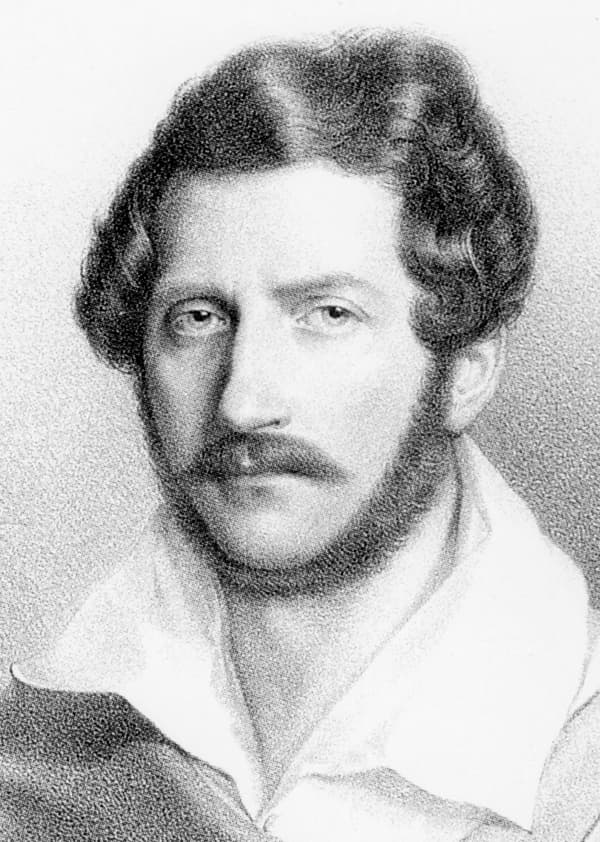
Gaetano Donizetti
Regarded as the high point of the 19th-century opera buffa tradition, Don Pasquale has been described as Mozartian since Gaetano Donizetti humanizes the characters instead of exposing farcical stereotypes. In fact, the melodies clearly mirror the emotions they express, and Donizetti crafted an irresistible and heartfelt comedy.
Gaetano Donizetti: Don Pasquale, “Overture”
Genesis
Don Pasquale is considered a comic masterpiece and the most popular of Donizetti’s 66 operas. The Italian libretto was quickly drafted by Giovanni Ruffini, with the composer helping out with verse as well. Ruffini was hard at work as he writes, “I’ve been eating up the paper. It’s not a question of doing it well or doing it badly, but of doing it fast.” After Donizetti added some refinements, the librettist dejectedly declared, “I don’t, so to say, recognize it as mine.”
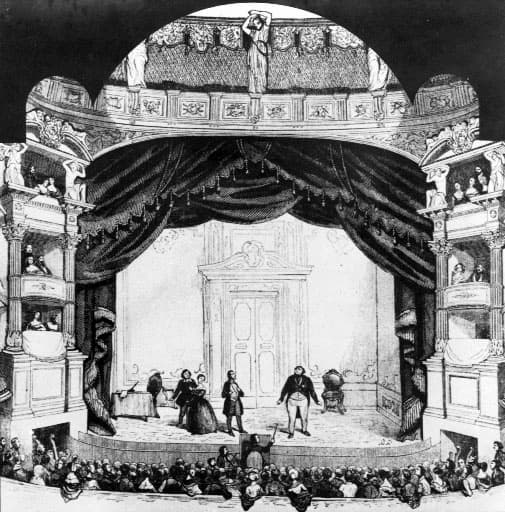
Staging of Don Pasquale at the Salle Ventadour in Paris (1843)
Donizetti was also in a hurry, as he put together the short score in the remarkably brief time of about two weeks. This rapidity is “possible for scholars because Donizetti was able to think in terms of complete musical structures and of his long experience in the theatre.” But what is more, Donizetti adapted music he had originally written for other contexts.
Gaetano Donizetti: Don Pasquale, Act 1 “So ancho’io la virtu magica”
The Basic Plot
The action takes place in Rome in the early 19th century. At the centre of the story is the old bachelor Don Pasquale, who wants to marry in order to punish his rebellious nephew Ernesto. Ernesto is in love with the young widow Norina, but with his uncle’s impending marriage, he will have no inheritance and will be unable to marry her.
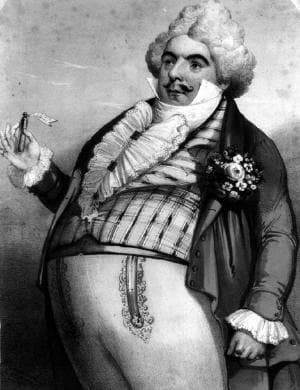
Luigi Lablache as Don Pasquale in the 1843 premiere
Donizetti gets things started with a rousing overture, sounding two prominent melodies, one given to Ernesto’s serenade and the other to Norina’s self-characterization. Pasquale consults the physician Malatesta to ensure he can still sire children, and he tells him about Sofronia, his own sister, who would be perfect for the marriage. The old bachelor is delighted and Ernesto is surprised at his uncle’s exuberance and worried when he learns that he plans to take a wife.
Gaetano Donizetti: Don Pasquale – Act I Scene 2: Pronta io son (Alda Noni, soprano; Mario Borriello, baritone; RAI Symphony Orchestra, Turin; Mario Rossi, cond.)
Impersonations
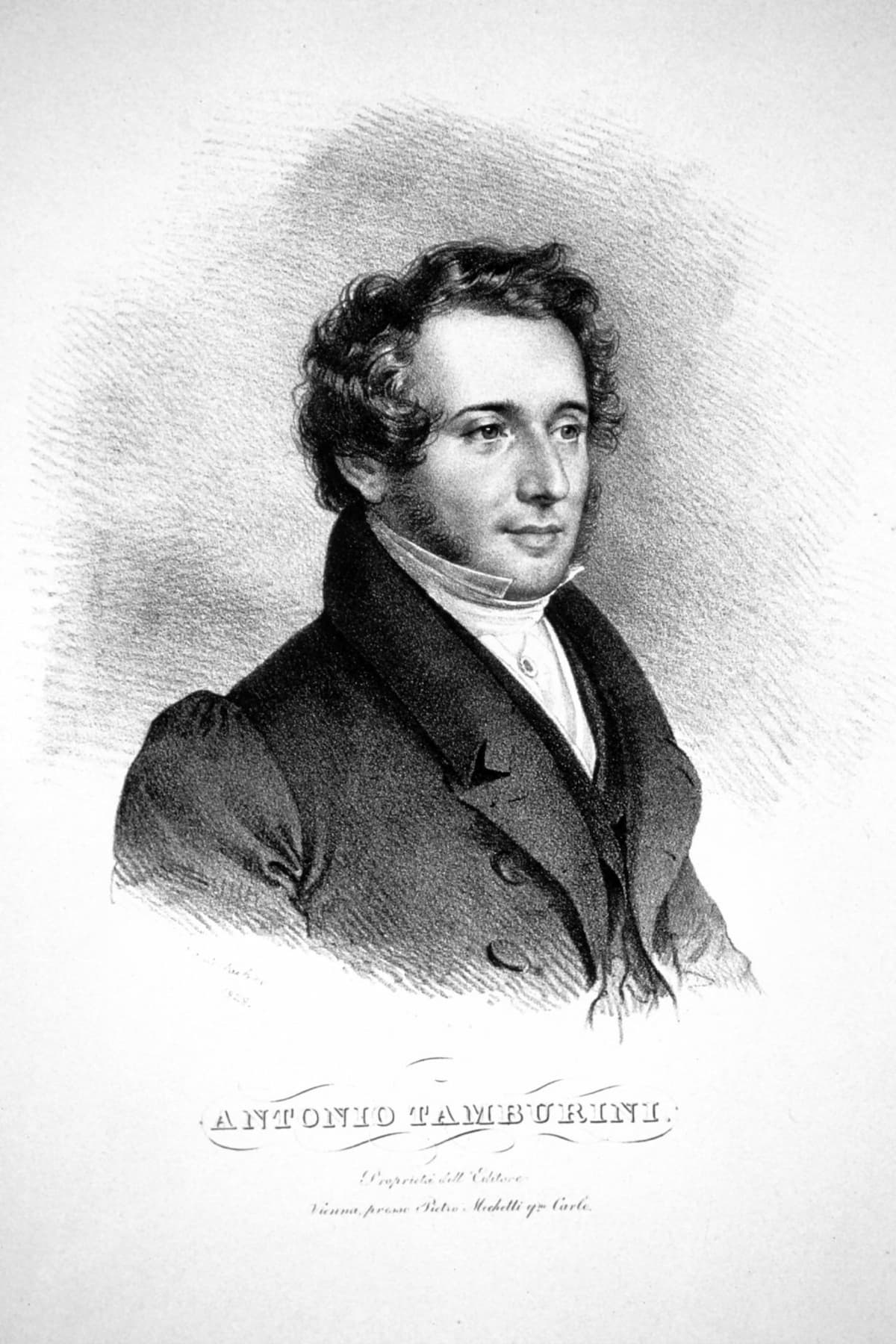
Antonio Tamburini
The youthful widow Norina laughs at all the silly romantic tales, as she knows how to ultimately win Ernesto. Malatesta visits, and together, they start working on a plot in just what manner she should enact the supposed bride for Pasquale. Meanwhile, Ernesto is feeling sorry for himself, lamenting his lost love. He departs before an eager Pasquale is ready to meet his bride Sofronia. Malatesta presents him with a veiled lady, Norina, who can hardly contain her laughter.
Malatesta introduces a notary, his cousin Carlino, who takes down the marriage agreement. When the document is signed Ernesto storms in, enraged at the spectacle of Norina apparently marrying his uncle. Malatesta whispers an explanation, and everybody watches the fun. As soon as they are declared man and wife, Sofronia turns into a shrew, nagging Pasquale, demanding servants, and the old man is flabbergasted.
Gaetano Donizetti: Don Pasquale, Act 2 “Finale”
Wedding and Resolution
Sofronia continues to order jewels and clothes and hire more servants. When she is all dressed up to go out, Pasquale stops her, and when he tries to order her around, she slaps him. He threatens divorce, but she storms out, dropping a note implying a rendezvous in the garden. Malatesta is called, and Pasquale recounts all his problems with his bride, with the physician struggling to keep a straight face. They hatch a plot to catch the lovers red-handed.
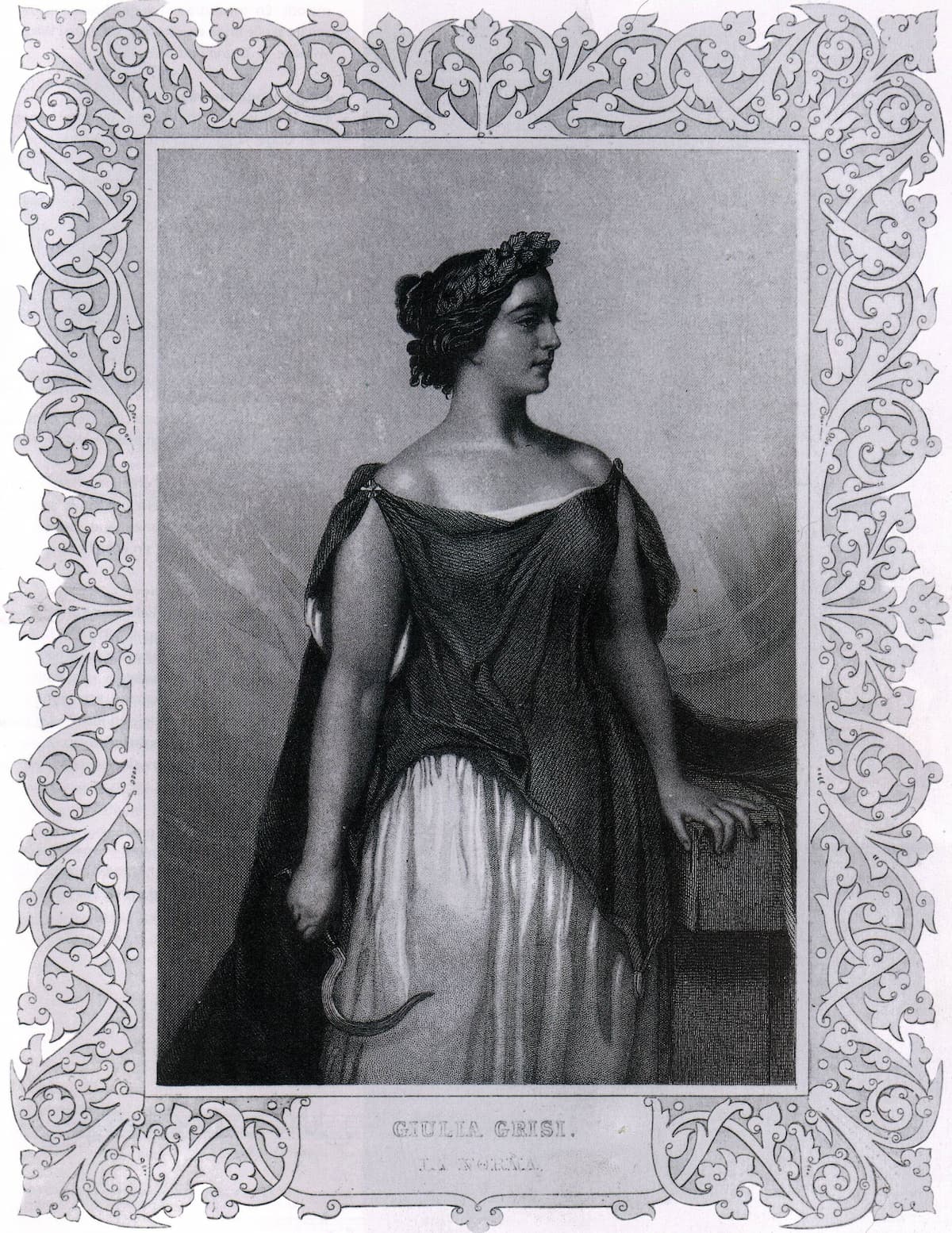
Giulia Grisi
In the garden, Ernesto sings a tender serenade, and Norina joins him for a rapturous duet. Don Pasquale and Malatesta have observed this scene from behind a bush, and the outraged husband now storms out of hiding to confront Norina. After a good bid of confusion, Malatesta tells Pasquale that he can get rid of Sofronia only by marrying Norina to Ernesto. Pasquale agrees, and when the supposed Sofronia turns out to be Norina herself, Pasquale accepts the situation with good grace.
Gaetano Donizetti: Don Pasquale, Act 3 “Signorina in tanta fretta”
Donizetti’s music is a marvel of concentration as he blends a mixture of new music and music adapted from other occasions “with a freshness and piquancy that remains unimpaired to this day.”
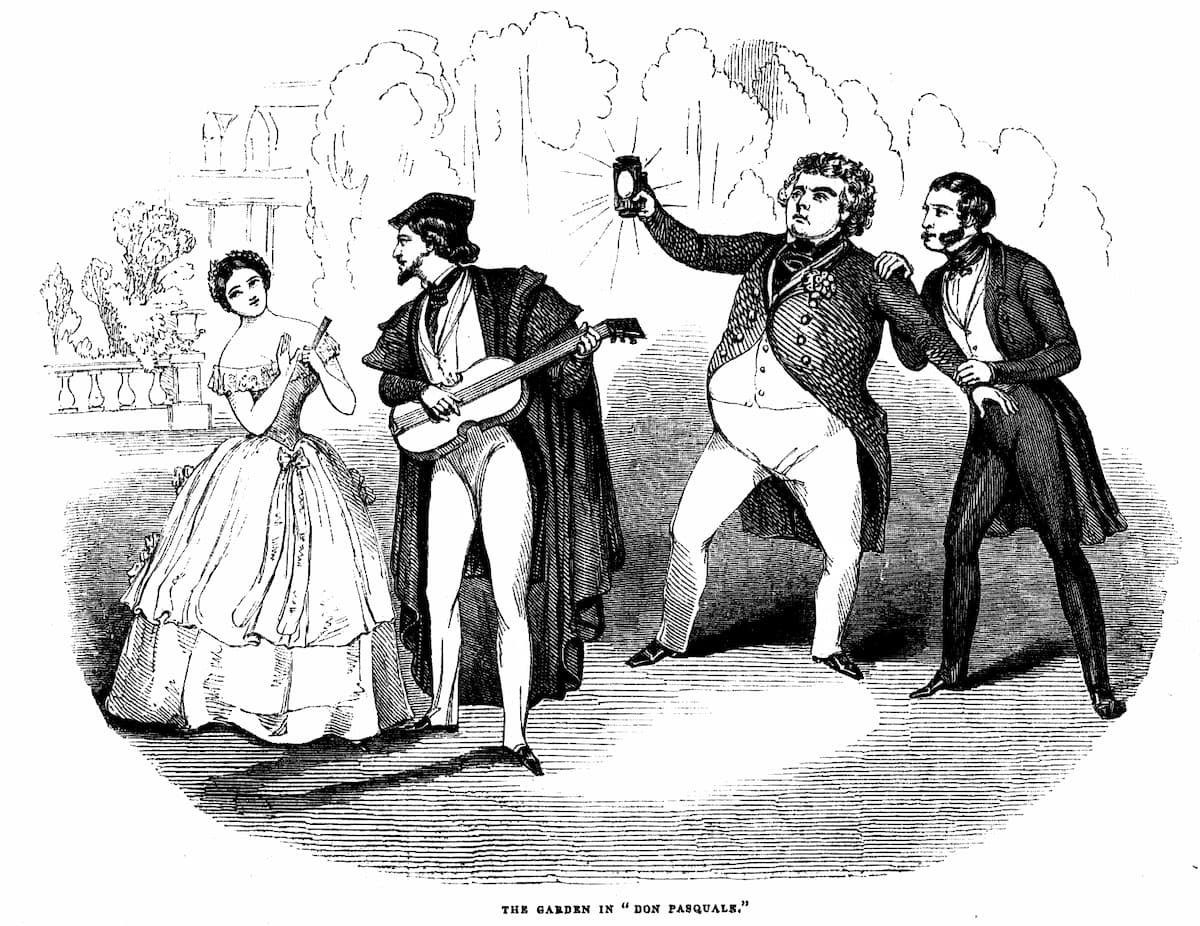
The Garden scene in Don Pasquale
The Italian, Viennese, and London premières took place in 1843, and the first English version sounded in New York in 1846. Don Pasquale took operatic stages by storm, and it never left the international repertory.
For more of the best in classical music, sign up for our E-Newsletter
